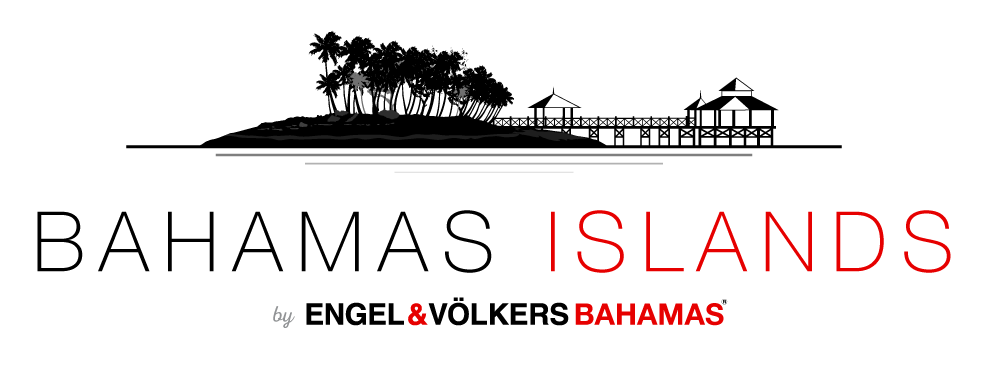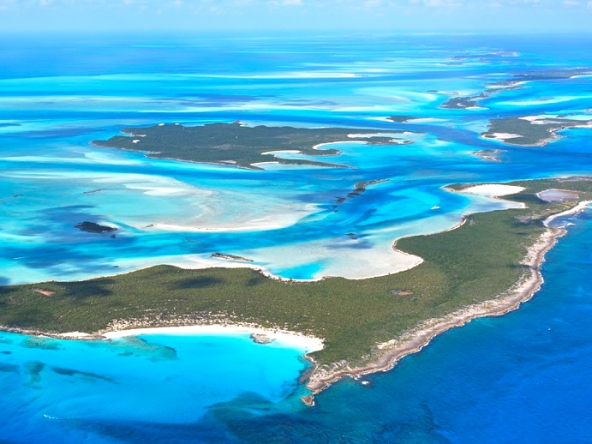1. What’s your price?
Paradise comes at a premium and a private island in The Bahamas will always demand a suitably hefty price tag, but there is certainly some variation. Before you begin your search, know your budget and, more importantly, if you’re deciding on which end to spend it they key is to focus on the land. This is true even if it means waiting longer to save or raise the funds necessary to develop it. A higher quality island will be worth more in the long run than an island that lacks some of the features that we’ll discuss further down this blog. It also goes without saying that once you have invested in the island itself, it’s much harder and more costly to change your mind about a piece of land than about what you put on it.
2. No island is…an island!
One of the top reasons why those looking to invest in property might seek out a private island is, surprise, surprise, for the privacy. To some, looking for an island that is far from any other inhabited area might be the obvious choice. But remember: the greater the distance from your nearest settlement, the more expensive it is to get staff and supplies, or to even for you to get to the island to begin with. Such additional costs can add up in the long term. Being closer to other landmasses can also provide more varied and appealing views in many cases, as well as some protection – financial and otherwise – from the occasional hurricane or tropical storm that can roll through the Bahamas. In The Bahamas, many available private islands are within a convenient distance to nearby settlements, providing the perfect combination of privacy and practicality.
3. Water, water: it’s not quite everywhere
Ironically, when living on your own island, access to water might seem to be easier than ever: you’re surrounded by it. But in fact access to a reliable water supply can be one of the biggest constraints. Is there ground water? A well? If so, verifying how dependable it is via an inspection should be a priority. A rainwater tank? And what is the annual rainfall? Many island dwellers in the Bahamas have survived on rainwater for generations. It falls in the rainy season and is then used slowly throughout the dryer months, but it’s important to consider what your usage is likely to be. An island closer to the mainland could potentially attach to the mains water system via a PVC pipe.
4. Coming and going
If you’re feeling particularly flush, you might be able to afford a private island with an airstrip. The Bahamas has quite a few. Then you’ll need to own or charter a plane to get there. If that’s not in your plans, then you’ll be arriving by boat, and that’s not a bad thing. Yachting is an enormously popular way to see The Bahamas and places like Exuma and the Abaco islands draw thousands of visitors this way each year. But when it comes to your island, it’s worth considering how easy it would be to get there by boat: is there deep water for anchoring a boat of the size you might have, or use to get there? Is there a dock? Or can you build one there? Is there a protected area where a larger boat could ride out a storm? If you don’t want the headache of having to consider all of this, an island nearer to a main airport may be the way to go. Luckily, The Bahamas has no shoretage of airports, both domestic and international.
5. Anchors away
Do you know what makes for good anchorage? If not, find someone who does before you pick your island. It could be the difference between waking up to see your boat missing after a storm or not! A few key factors make for good anchorage at your private island: sandy bottom for holding the anchor, deep water for access, and not too much rock or coral that could cause you a major headache when you’re trying to navigate. If you find the perfect island without these elements, a mooring buoy and a tender could be a solution. There are many private islands available throughout the Bahamian archipelago that offer these features.
6. The highs and the lows
Topography is important – how much flat land is there on your island on which you could build, how much elevation? Generally speaking The Bahamas is flatter than many of its Caribbean neighbours, which is handy for those looking for a private island to develop, as flat land is easier to build on. On the other hand, this can also mean more exposure to the elements should a storm whip up, and getting good elevation can take a bit more hunting. Letting your realtor know what you are looking for in this respect should be one of the first things you do when on the hunt for a private island of your own.
7. Beauty and the beach
Think of serenity and often a view of a dazzling, multi-tonal sunset in the Caribbean comes to mind; its reflection rippling across calm seas. Prefer to be able to sit on the beach and watch this daily display of nature at its best? Then you’re going to want a westward-facing beach! If the sunset isn’t your number one priority, or you don’t mind taking a walk to get to it, then no need to worry. Elsewhere, the fineness of the sand – is it volcanic? coarse? white? rocky? – might be a consideration but The Bahamas, known for its powdery white sand, makes this one element of your private island lifestyle you won’t need to work too hard to figure out. Those who enjoy swimming and snorkeling from their front door will want a beach that has a bit of depth to it.
8. A watchful eye
Though owning a private island is idyllic in many ways, they require daily care and attention, whether from a maintenance perspective or security. Hiring a caretaker, or a couple, who can fulfill this role, maybe an important consideration once you have something on the island. For those who have yet to develop their properties, or don’t consider their assets there to be overly precious, having a local fisherman on your side who can keep an eye on things might be the way to go.
9. Developing the dream: utilities, infrastructure and the island premium.
You might want to use your island to get away from it all, but rarely can any of us switch off completely. Connectivity is therefore going to be an important consideration. Take a cell phone to assess the state of cell phone service from the island. If it doesn’t have access to the internet, telephone, television or radio and these are not possible to access via the mainland, these are fairly easily accessible via satellite today.
Now you have your perfect island in your sights, you will also want to know exactly what’s there: what is the existing infrastructure, its condition and value; were buildings built with proper government approvals; will any repairs or demolitions be required? Think ahead to avoid headaches down the line.
Bear in mind the added costs that are involved in developing property on an island when planning your development there. Transporting materials and labour to the island is not always going to be easy or cheap. Fortunately, any such development will ultimately be worth a lot more because of its exclusivity, so taking a long term view (and perhaps having a rum cocktail on the beach at sunset) will help ease the strain of going through this process!
Looking to buy your own private island? Bahamas Islands specializes in helping clients find the perfect island for their needs.

